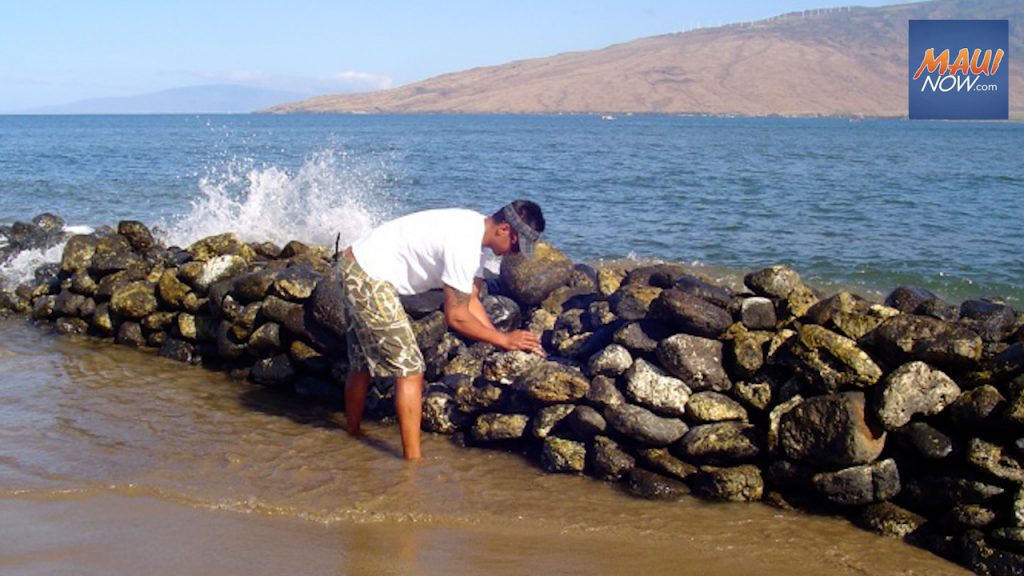Indigenous knowledge and cutting-edge data aim to help revitalize Hawaiian fishponds
Three local organizations: Purple Maiʻa Foundation, Kuaʻāina Ulu ʻAuamo, and Hohonu, Inc., are launching the Loko Iʻa and Coastal Monitoring Project that will help up to 30 Hawaiian Fishpond restoration groups across the state.
The project engages local communities in the design process, and will work with them to gather insights on the biggest barriers to fishpond restoration for food production.

Hawaiʻi’s fishpond practitioners, coastal communities, and local government will have access to real-time environmental data that supports biocultural restoration, climate change monitoring, resilience planning, and mitigation.
In addition to providing operational support, the sensor and data tools deployed can serve a broad audience for educational outreach and workforce development activities. The initiative will initially focus efforts across Honolulu and Maui counties on the islands of Lānaʻi, Molokaʻi, Maui, and Oʻahu.
“We are pleased to play a role in helping to empower kiaʻi loko and coastal communities with technology that can help in their work. With prior federal support, we created an educational curriculum for our keiki that teaches the importance of our fishpond practices and the role that technology plays in that; this project is an extension of that earlier work,” said Donavan Kealoha, CEO and co-founder of Purple Maiʻa.
“Weʻre building upon an ecosystem of exciting research projects at UH Mānoa, the establishment of the He‘eia National Estuarine Research Reserve, and local nonprofits hosting international conferences that bring together practitioners, technologists, academics, and innovators,” said Brian Glazer, CEO and co-founder of Hohonu, Inc. and Associate Professor of Oceanography at the University of Hawai‘i at Mānoa. “Thanks to the leadership of indigenous groups whose traditional practices have always included coastal observation and management, Hawaiʻi is emerging as a global leader in harnessing contemporary technologies for better coastal restoration practices.”
Organizers say that with the help of modern data science tools, such as quantifying and tracking impacts of biocultural restoration activities, fishpond practitioners will further their knowledge of coastal systems and be better able to monitor accelerating effects of climate change.
“In the 21st Century it is absolutely essential to build bridges between Indigenous knowledge and practices with modern science and technology to solve the pressing problems of water quality and food production,” said Herb Lee, Jr., President and CEO of Pacific American Foundation. “If we are to be a ‘producer’ again and take care of our community long -term, this is paramount.”
The initiative’s activities will include:
- Engaging fishponds groups and community-service organizations through an indigenous design framework to understand sensor deployment and data visualization needs
- Designing, developing, and deploying environmental sensors
- Building a kiaʻi data dashboard with the help of Maui-based consulting firm, Natural Resource Data Solutions
Project funding was made possible by Congressionally directed spending championed by US Senator Brian Schatz in Fiscal Year 2022, as well as support from the National Oceanic Atmospheric Administration’s Pacific Islands Fisheries Science Center.
For more information on the project, go to purplemaia.org/lokoia




_1768613517521.webp)


